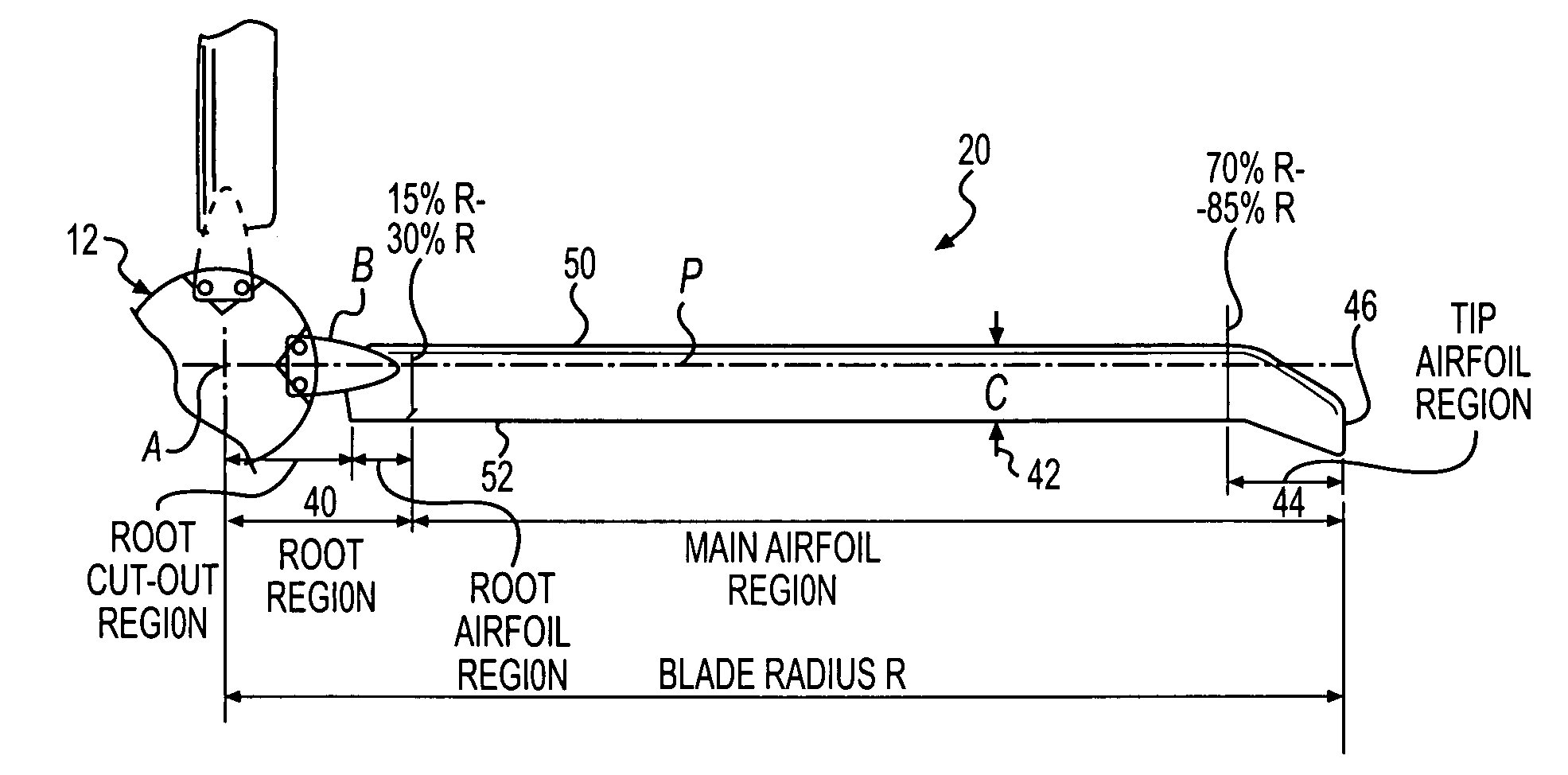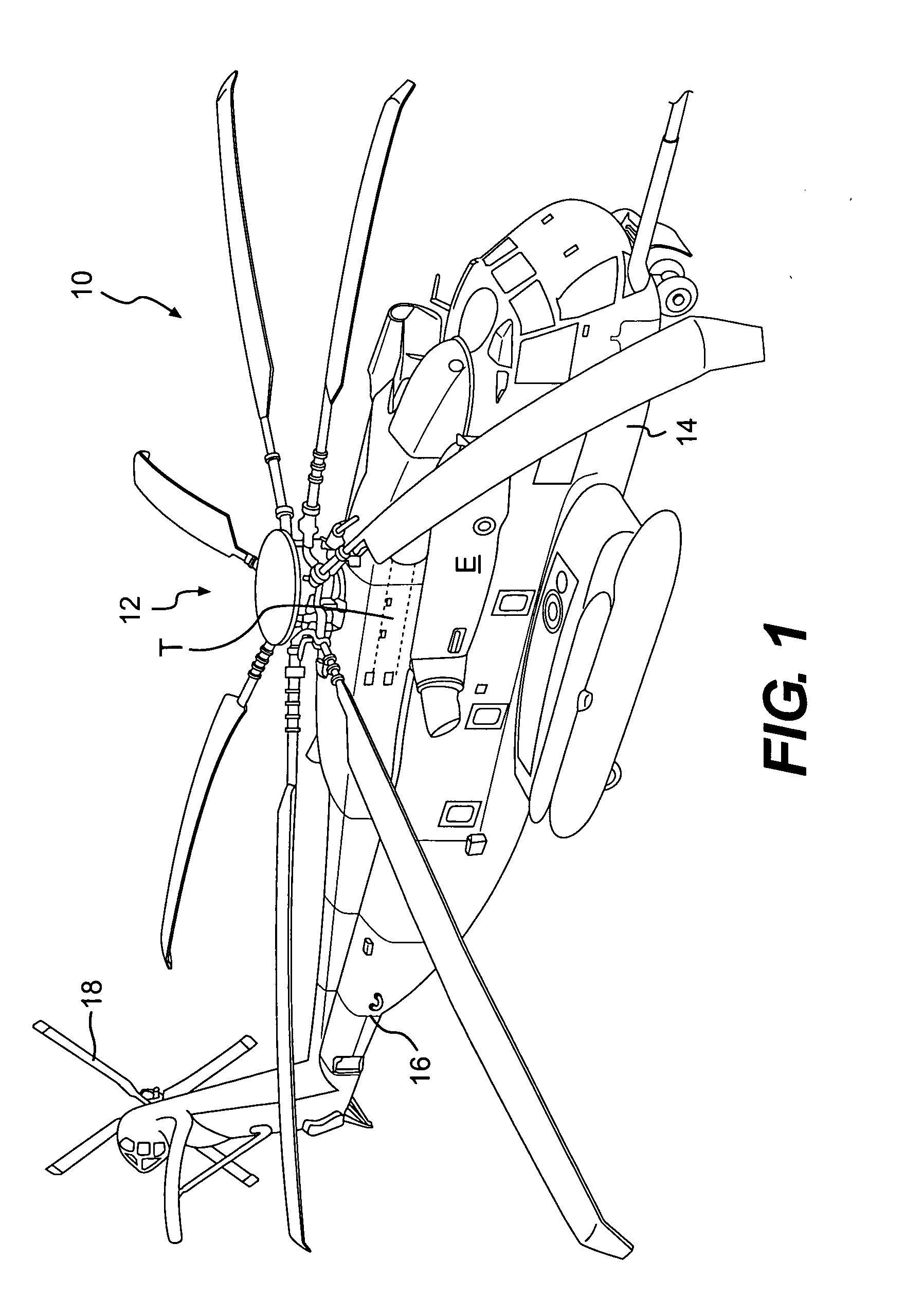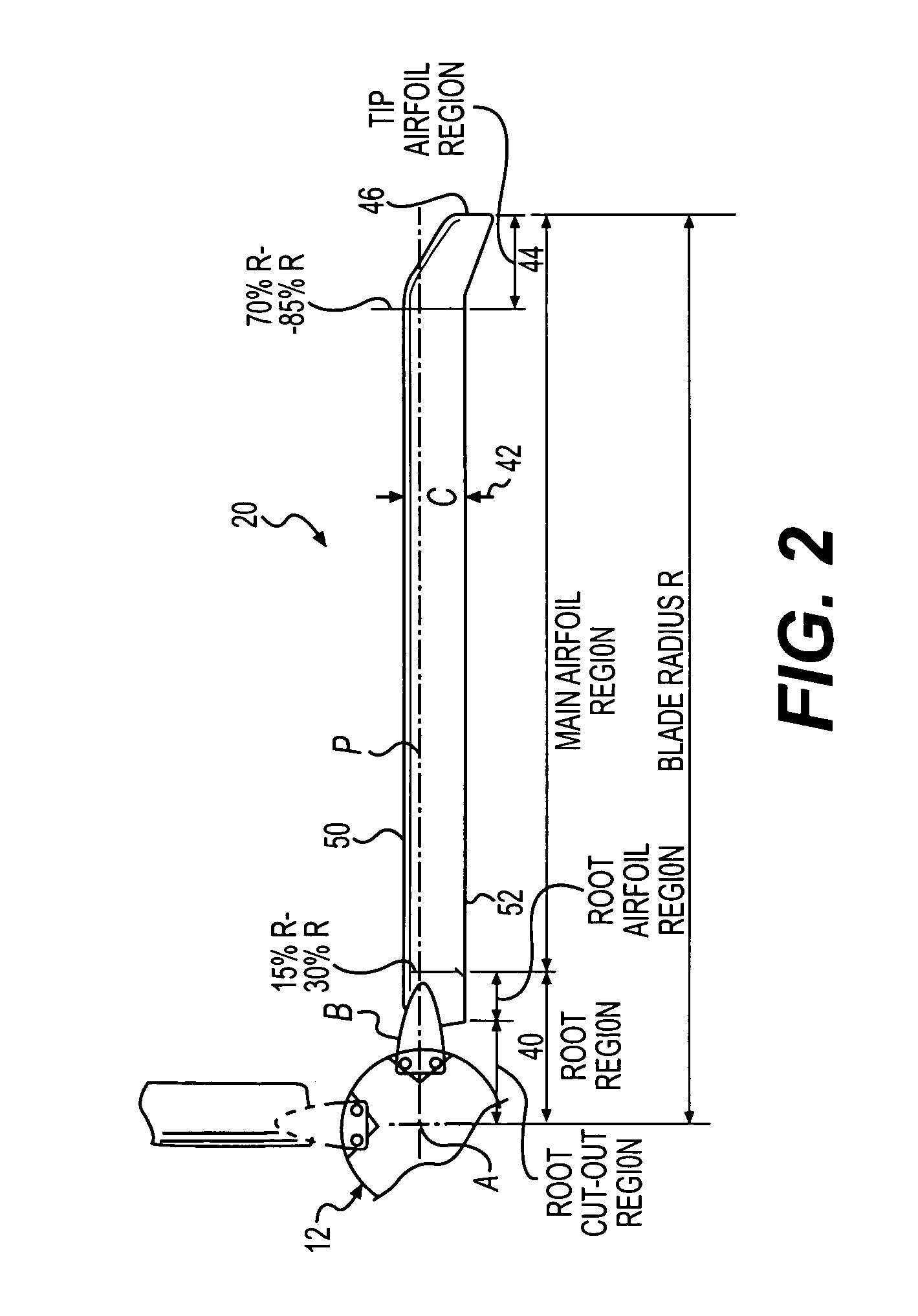Rotor blade tip planform
a technology of rotor blades and planforms, which is applied in the direction of liquid fuel engines, vessel construction, marine propulsion, etc., can solve the problems of increasing the drag of the tip airfoil, reducing the hovering efficiency of the rotor system accordingly, and limiting the range of mach numbers and angles of incidence of airfoils, so as to improve the hovering efficiency, improve the lift and drag characteristics, and increase the tip taper
- Summary
- Abstract
- Description
- Claims
- Application Information
AI Technical Summary
Benefits of technology
Problems solved by technology
Method used
Image
Examples
Embodiment Construction
[0018]FIG. 1 schematically illustrates a rotary-wing aircraft 10 having a main rotor assembly 12. The aircraft 10 includes an airframe 14 having an extending tail 16 which mounts an anti-torque rotor 18. The main rotor assembly 12 is driven through a transmission (illustrated schematically at T) by one or more engines E. The present invention may be embodied for use with rotor assemblies of other helicopters, high speed coaxial counter-rotating aircraft with translational thrust systems, turbo-props, tilt-rotor aircraft and other such aircraft. It should be understood that a Sikorsky CH-53 type helicopter configuration as illustrated in the disclosed embodiment is for discussion purposes only.
[0019]FIG. 2 illustrates a general exemplary plan view of a main rotor blade 20. The rotor blade 20 can generally be divided into a root region 40, a main region 42, and a tip region 44. The root, main, and tip regions 40, 42, 44 define the span of the rotor blade 20 and define a blade radius ...
PUM
 Login to View More
Login to View More Abstract
Description
Claims
Application Information
 Login to View More
Login to View More - Generate Ideas
- Intellectual Property
- Life Sciences
- Materials
- Tech Scout
- Unparalleled Data Quality
- Higher Quality Content
- 60% Fewer Hallucinations
Browse by: Latest US Patents, China's latest patents, Technical Efficacy Thesaurus, Application Domain, Technology Topic, Popular Technical Reports.
© 2025 PatSnap. All rights reserved.Legal|Privacy policy|Modern Slavery Act Transparency Statement|Sitemap|About US| Contact US: help@patsnap.com



